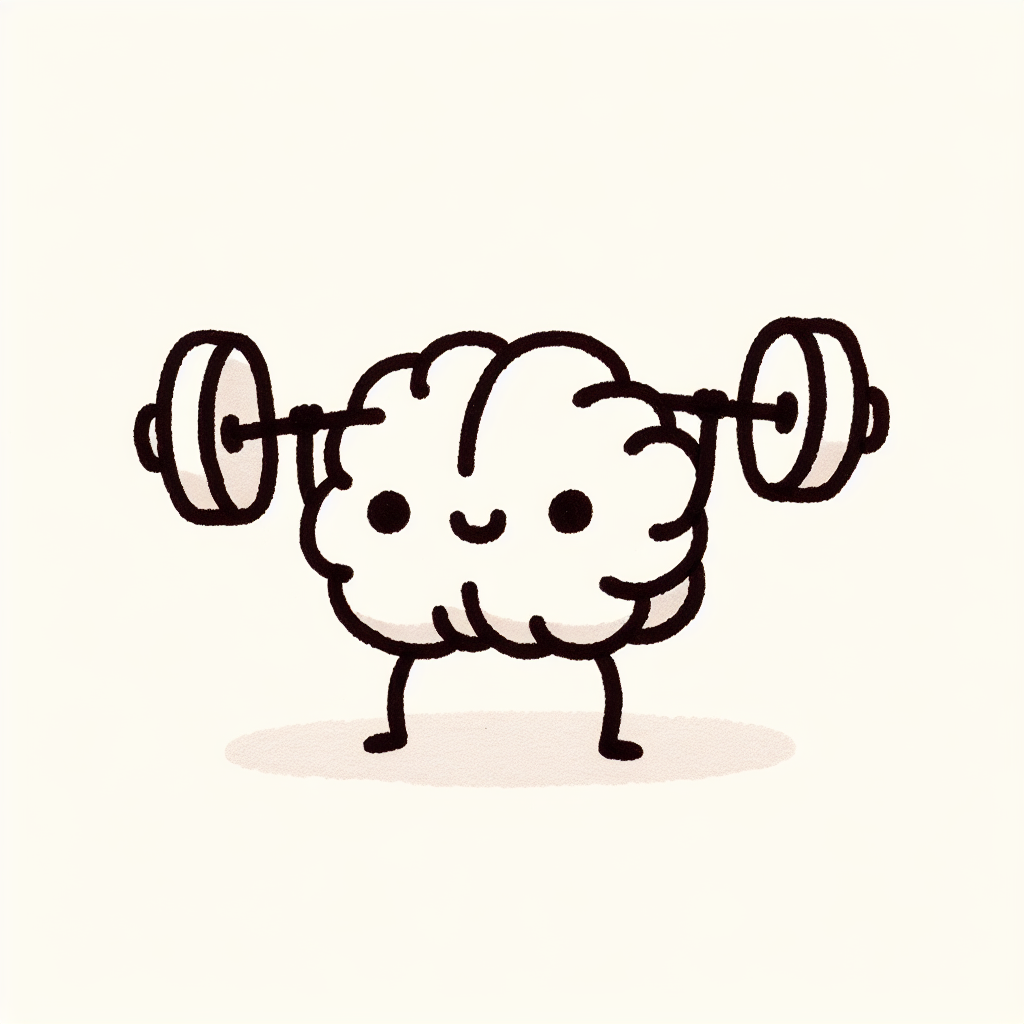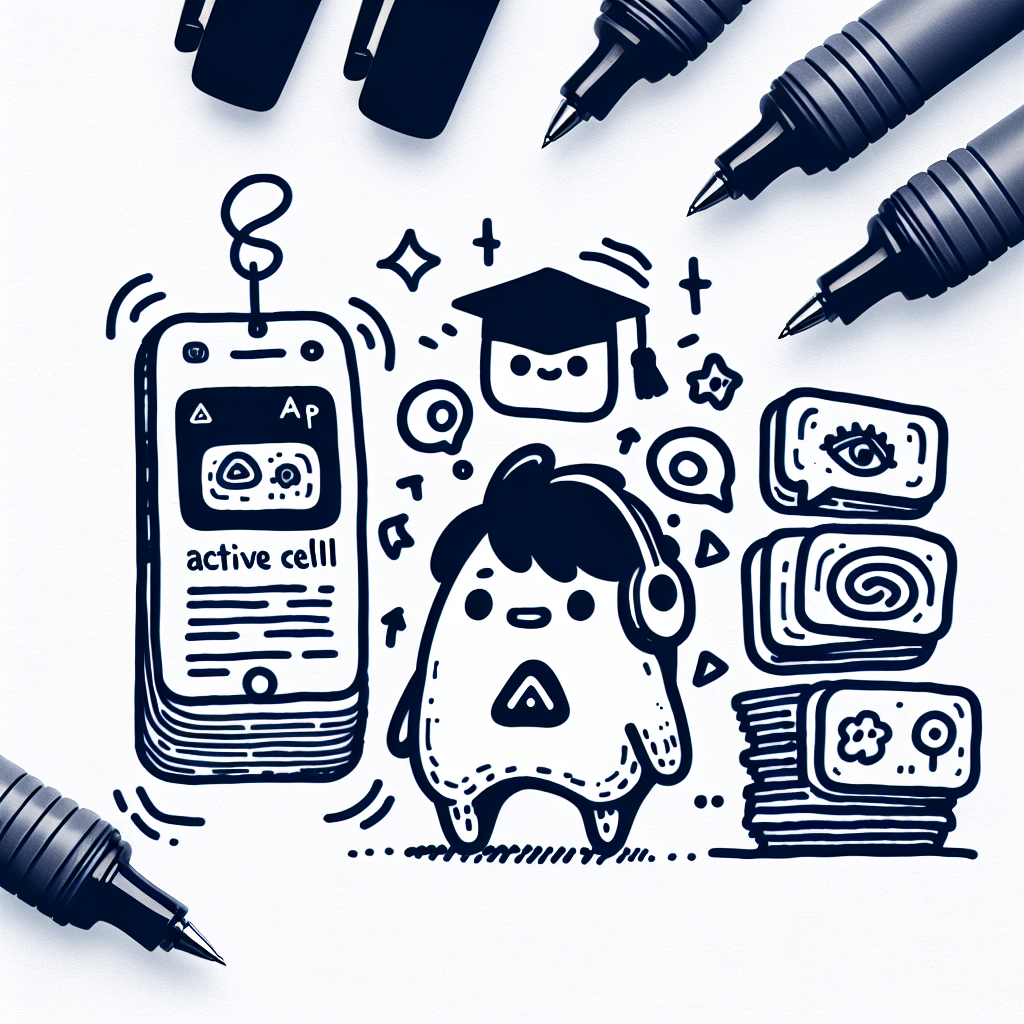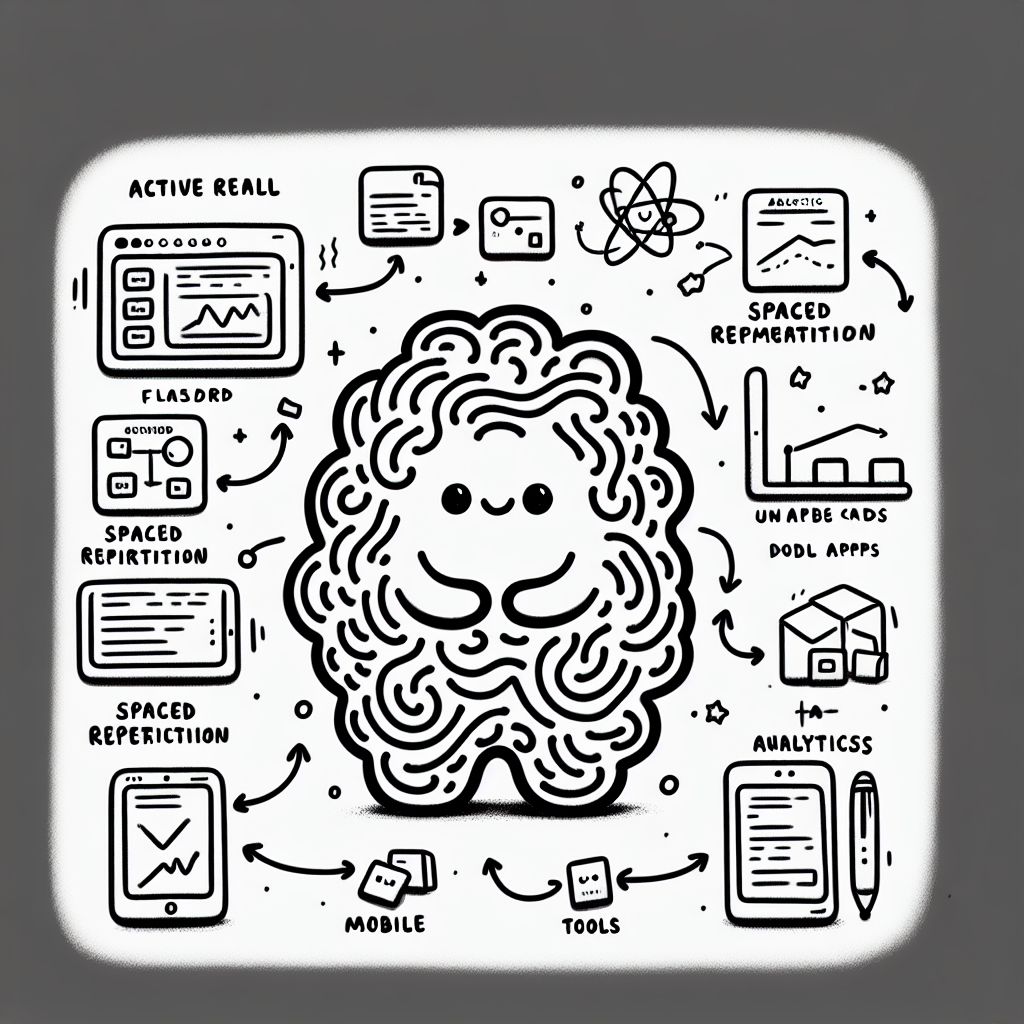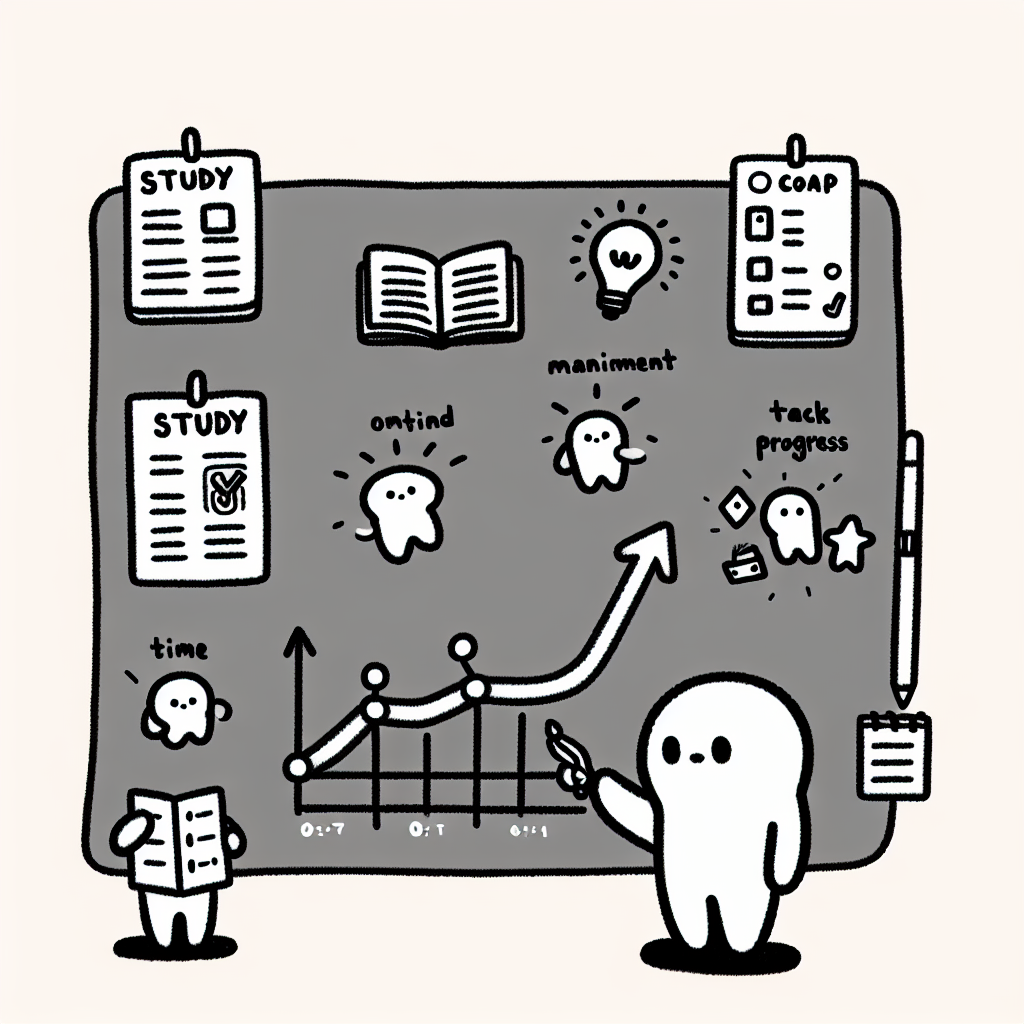Introduction
The active recall study method is a learning technique that involves actively stimulating memory by retrieving information from the brain, rather than passively reviewing notes or textbooks. This approach typically includes practices like self-testing, using flashcards, or answering questions without referring to source material.
Active recall matters because it is supported by cognitive science and numerous empirical studies as one of the most effective strategies for enhancing learning outcomes and long-term memory retention. Research shows that the act of retrieving information strengthens neural pathways, making future recall easier and more reliable over time.
This method is useful for a wide range of learners. High school and college students, graduate students preparing for exams, and professionals engaged in continuing education can all benefit from incorporating active recall into their study routines.

The Science Behind Active Recall
Active recall study method leverages key cognitive mechanisms to enhance learning and memory retention. At its core, it involves actively retrieving information from memory rather than passively reviewing it.
Cognitive Mechanisms
One of the primary cognitive processes at work is retrieval practice, which strengthens neural pathways associated with the recalled information. By repeatedly accessing this information, the brain reinforces its storage, making future recall more efficient.
Another critical mechanism is the testing effect, which refers to the improved retention of material that has been previously tested. When learners engage in active recall, they essentially test themselves, leading to deeper memory consolidation and improved long-term learning.
Comparison to Passive Study Methods
In contrast, passive study techniques—such as rereading notes, highlighting text, and summarizing material—do not engage the brain in the same way. These methods often give learners a false sense of mastery without truly reinforcing memory.
Research shows that the active recall study method consistently outperforms passive approaches in both short-term academic performance and long-term retention. For example, a study published in Medical Education Online found that students who utilized active recall strategies demonstrated significantly better understanding and memory retention than those who relied on passive methods.

Evidence-Based Benefits
Academic Performance
Active recall study method has been linked to higher academic achievement. Techniques such as self-testing and the use of flashcards are shown to correlate positively with improved GPA and standardized test scores. According to a study published in the Educational Research Review, students who consistently use active recall strategies tend to outperform their peers who rely on passive study methods.
Learning Efficiency
The active recall study method significantly enhances learning efficiency. It enables learners to retain more information in a shorter period of time, making study sessions more productive. Research using machine-learning-optimized recall tools demonstrated that learners retained information 67% longer compared to those using traditional methods (arXiv - Machine Learning Study). This suggests that active recall not only improves immediate learning outcomes but also optimizes how time is spent studying.
Long-Term Retention
The benefits of the active recall study method extend to long-term memory retention. A longitudinal study found that students using active learning techniques maintained nearly complete retention of conceptual material even 15 months after initial exposure (arXiv - Physics Course Study). This underscores the method’s effectiveness for sustained learning and knowledge durability.

Real-World Usage and Demographics
Case Study: Medical Students
The active recall study method is widely used among medical students, especially in the early years of training. A study found that 70.1% of first- and second-year medical students reported using self-testing techniques, a core component of active recall. Furthermore, 11.8% of these students identified active recall as their primary learning strategy (Journal of Medical Education and Curricular Development). This high prevalence suggests that even in rigorous academic settings, active recall is both trusted and effective.
Broader Applications
Beyond medical education, the active recall study method is commonly used by undergraduate and high school students. Tools like flashcards, self-quizzing, and apps such as Anki support this approach and are integrated into daily study habits. The method also extends into professional and lifelong learning contexts. Individuals preparing for certifications, learning new languages, or participating in corporate training frequently employ active recall techniques to enhance retention and mastery.

Methods and Tools for Implementing Active Recall
Basic Techniques
The active recall study method can be implemented using several foundational techniques. Free recall involves writing down everything you can remember about a topic without using any prompts. This method strengthens memory by forcing the brain to retrieve information independently. Self-testing, such as completing practice questions or creating mock quizzes, helps identify knowledge gaps and reinforces learning. Flashcards are another effective tool; whether physical or digital, they enable repeated retrieval of information. When paired with spaced repetition, flashcards become particularly powerful in reinforcing long-term memory.
Technological Aids
Technology can significantly enhance the active recall study method. Spaced Repetition Software (SRS) platforms like Anki, Quizlet, and SuperMemo use algorithms to schedule reviews at optimal intervals, maximizing retention over time. These tools adapt based on how well you remember each item, ensuring efficient learning. Emerging AI-powered platforms go a step further by using machine learning to personalize recall intervals and suggest study content dynamically (arXiv - Machine Learning Study).
Integrating with Other Techniques
Combining the active recall study method with complementary strategies can enhance its effectiveness. Interleaving involves alternating between different topics or subjects during study sessions, promoting better discrimination and understanding. Elaboration encourages learners to explain concepts in their own words after recalling them, deepening comprehension. Dual coding uses both verbal and visual materials—such as diagrams or charts alongside written explanations—to engage multiple cognitive pathways, improving retention and recall accuracy.

Best Practices for Active Recall
How to Get Started
To implement the active recall study method effectively, start by setting clear objectives. Define exactly what information you need to retain, whether it's key concepts, formulas, or vocabulary. This helps focus your recall sessions.
Next, choose the right tools to support your learning. Flashcards, question banks, and apps like Anki or Quizlet can be excellent resources, especially when tailored to your learning preferences and the subject matter.
Start small by limiting your recall sessions to manageable chunks. Short, focused sessions help prevent burnout and make it easier to build a consistent habit. As you become more comfortable, gradually increase the duration and complexity of your recall practice.
Frequency and Timing
For maximum effectiveness, use spaced repetition over cramming. The active recall study method is most beneficial when information is reviewed at increasing intervals, which strengthens long-term memory. Spaced repetition algorithms, like those built into many flashcard apps, automate this process.
Make active recall a part of your daily routine. Frequent, consistent sessions—even if brief—are more effective than infrequent, lengthy study marathons.
Tracking Progress
Track your results using analytics tools available in many study apps. These metrics can show how often you've reviewed a concept, your success rate, and which items need more attention.
Based on this data, adjust your strategies. If certain topics consistently challenge you, consider reviewing them more frequently or experimenting with different recall techniques. Regular reassessment ensures your study method evolves with your needs.

Challenges and How to Overcome Them
Initial Difficulty
One common challenge with the active recall study method is that it feels more mentally taxing than passive review. This is because active recall requires retrieving information from memory rather than simply re-reading notes or textbooks. To overcome this, learners should build endurance gradually. Start with short sessions and increase duration over time. Although more demanding, this effort results in stronger memory retention and deeper understanding.
Time Management
Another hurdle is that creating flashcards or crafting practice questions takes time. This can be discouraging for students with packed schedules. To address this, learners can use shared decks from platforms like Anki, take advantage of AI-generated question tools, or collaborate with peers to divide the workload. These strategies help maintain consistency without overwhelming time commitments.
Motivation and Consistency
Staying motivated and consistent with the active recall study method can be difficult, especially over long study periods. To counter this, students should set clear, achievable goals and track their progress. Reward systems—like taking a break or treating oneself after a session—can reinforce positive habits. Joining study groups can also provide accountability and encouragement, making it easier to stick with the method over time.

Conclusion
The active recall study method is a proven, evidence-based technique that significantly improves memory retention, academic performance, and study efficiency. By actively retrieving information rather than passively reviewing it, learners reinforce neural pathways and strengthen long-term memory. Studies consistently show that active recall outperforms other study strategies like rereading or highlighting in terms of knowledge retention and exam performance.
Whether you're a student preparing for exams, an educator designing effective learning experiences, or a lifelong learner aiming to master new concepts, incorporating the active recall study method into your routine can lead to measurable improvements. Start small by using flashcards, self-quizzing, or practice tests, and build a habit that supports long-term success.

References
- Artino, A. R., La Rochelle, J. S., & Durning, S. J. (2022). Self-reported Learning and Study Strategies in First and Second Year Medical Students. Medical Science Educator. This study highlights the prevalence of the active recall study method among successful medical students and its correlation with academic performance.
- Dunlosky, J., et al. (2024). Active Recall Strategies Associated with Academic Achievement in Young Adults: A Systematic Review. Journal of Cognitive Enhancement. This systematic review evaluates the effectiveness of the active recall study method in enhancing academic achievement across various educational contexts.
- Karpicke, J. D., & Roediger, H. L. (2014). How to Learn Effectively in Medical School: Test Yourself, Learn Actively, and Repeat in Intervals. Perspectives on Medical Education. The article emphasizes the advantages of the active recall study method, particularly through repeated self-testing and spaced repetition.
- Zhang, Y., et al. (2020). Large-scale Randomized Experiment Reveals Machine Learning Helps People Learn and Remember More Effectively. arXiv preprint. This research demonstrates how machine learning tools can facilitate the implementation of the active recall study method, leading to improved retention.
- Deslauriers, L., et al. (2020). Retention of Conceptual Learning after an Interactive Introductory Physics Course. arXiv preprint. The study explores how interactive learning, including the active recall study method, supports long-term retention of conceptual material.







.png)






